
BFI London Film Festival 2025 Reviews: The Secret Agent, Twinless and more!
London’s biggest celebration of film is back for another year, and Film Feeder will once again be covering some of the biggest movies on offer!
But this year, we’re shaking up our regular reviewing format: instead of publishing separate reviews for each and every movie – and trust us, there’s going to be A LOT of them – we are going to clump them onto single pages in numerous collections throughout the festival, giving you even more than ever before!
It’s all very accessible, though, for you can skip down to the review of your choice by clicking on any of the hyperlinks below, where you’ll find a drop-down option that will open it up for you to read. That way, this whole page won’t feel like one endless scroll downwards!
So check out our first batch of reviews below, and if you’re inspired to check any of these films out, click here to book (where available) on the BFI London Film Festival’s official website!
Sound of Falling (dir. Mascha Schilinski)
Click To Read Our Review For Sound Of Falling!
WHO’S IN SOUND OF FALLING?
Hanna Heckt, Lena Urzendowsky, Laeni Geiseler, Susanne Wuest, Luise Heyer, Lea Drinda, Florian Geißelmann, Greta Krämer, Claudia Geisler-Bading, Zoë Baier, Konstantin Lindhorst, Luzia Oppermann, Gode Benedix, Filip Schnack, Martin Rother, Andreas Anke, Liane Düsterhöft, Lucas Prisor, Ninel Geiger, Helena Lüer, Anastasia Cherepakha, Bärbel Schwarz
WHO’S BEHIND THE CAMERA?
Mascha Schilinski (director, writer), Louise Peter (writer), Burkhard Althoff, Melvina Kotios, Lasse Scharpen and Lucas Schmidt (producers), Michael Fiedler and Eike Hosenfeld (composers), Fabian Gamper (cinematographer), Evelyn Rack (editor)
WHAT’S IT ABOUT?
Four generations of girls from different historical periods are connected by a farm in Germany…
WHAT ARE MY THOUGHTS ON SOUND OF FALLING?
Though the English title of filmmaker Mascha Schilinski’s second feature is Sound of Falling, its original German name – In die Sonne Schauen, which translates literally to Looking at the Sun – is a more appropriate title for a film that often emits a hazy, discombobulated blur that can only come from (what else?) looking at the sun for too long. As you may have gathered from that analogy, there’s a distinct sense of visual poetry in Schilinski’s film, with every scene carrying an underlying complexity that isn’t immediately obvious, but nonetheless straightforward in its conveyance of harrowing themes and unspoken horrors.
However, while it’s impossible to doubt that Schilinski has a rather extraordinary vision, Sound of Falling – as it will be known as from hereon, mainly for consistency – didn’t really work for me. I found it to be a flimsy and overly vague exercise in multi-generational storytelling that, ambition aside, ultimately came up empty in its search for emotional commitment.
The film is told in a non-linear format across four different time periods, all of which take place at the same farmhouse somewhere in the German countryside, and each from the perspective of a young woman or girl that is in some way related to other characters. First, there’s little Alma (Hanna Heckt), the youngest daughter of a deeply conservative family in the early 20th century, whose curiosity leads her to witness some disturbing truths hidden by her elders, including a photograph of a young dead girl who looks and is even named exactly like her, a brutal display of tough love upon her one-legged brother Fritz (Filip Schnack), and the harrowing treatment of housemaid Trudi (Luzia Oppermann).
Then, much more briefly, we have Erika (Lea Drinda), the abused daughter of a farmhand in the 1940s who’s harbouring a serious fascination with her uncle Fritz (now played by Martin Rother), before moving forward to the 1980s when teenager Angelika (Lena Urzendowsky), the daughter of Erika’s sister Irm (Claudia Geisler-Bading), is blossoming into her sexuality over a summer on the farm, now situated in East Germany. Finally, in the present, Lenka (Laeni Geiseler) is the eldest tween daughter of a family from Berlin that have purchased and are doing up the farmhouse, which is where Lenka befriends local girl Nelly (Zoë Baier), who’s recently lost her mother to cancer.
The ways in which it frequently, or even not so frequently, cuts back and forth between all these time periods, which are already loosely connected by soft voiceover narration and surreal dream-like imagery, almost make it feel as though this were what Terrence Malick’s adaptation of Little Women would be like. Although Sound of Falling has a much larger sense of plot than the last bunch of Malick movies combined, it shares a similar reliance on imagery to convey a much deeper set of themes that the simplistic dialogue just cannot comprehend. In fairness, it is a gorgeously shot film, with cinematographer Fabian Gamper adopting a grainy shot-on-film aesthetic within the classic 1.33:1 aspect ratio that radiates throughout, and often provides some haunting shots wherein the lighting, framing and even the way that the handheld camera moves all add to the unnerving nature of certain scenes, as does some surprisingly intense sound design that almost has you shaking with fear in a few choice fantasy sequences.
The problem, at least for me, is that the film is perhaps too artistic for its own good. Characterisation is present, but is barely touched upon, as Schilinski always keeps the audience at arm’s distance from the people we’re supposed to be following, with even their voiceovers adding little to their growth other than providing handy exposition about the backstory of certain supporting players. The only one of our protagonists who feels the most like a rounded character is Lena Urzendowsky’s Angelika, whose semi-innocent frolicking and flirtatiousness with close family members suggests a much darker history where some degree of incestuous lusting is definitely part of the bigger picture, whereas others are too thinly sketched or overly passive in their presentation, by no fault of the other young actors playing them.
There simply isn’t a strong enough emotional connection with or between the characters to fully understand who they are or what they are representing, which ultimately renders the striking imagery rather empty, as it rarely ever feels as though there’s anything profound being said underneath these visuals, other than bleak poetry readings and even the faint hint of a more supernatural presence throughout these points in time (a concept that is sadly not looked into that much). The fact that it all unfolds at such a slow pace across its two-and-a-half-hour runtime makes it feel like more of a slog, one where you may find yourself drifting in and out of concentration out of borderline boredom.
That being said, I wouldn’t fault anyone that comes away with a much more transformative experience than I was able to from Sound of Falling, which even though it ultimately wasn’t my cup of tea I can at least respect in terms of its artistic vision and ambition. But for me, I have a suspicion that looking at the sun might have been a more substantial use of my time.
SO, TO SUM UP…
Sound of Falling is a visually impressive piece as filmmaker Mascha Schilinski employs some striking cinematography to create some poetic visual language across its ambitious scope, but thin characterisation and an overreliance on ultimately empty surreal visuals make it more of a chore to sit through.
⭐⭐⭐
My Father’s Shadow (dir. Akinola Davies Jr.)
Click To Read Our Review For My Father's Shadow!
WHO’S IN MY FATHER’S SHADOW?
Ṣọpẹ́ Dìrísù, Godwin Chiemerie Egbo, Chibuike Marvellous Egbo, Efòn Wini, Tosin Adeyemi, Adesina McCoy Babalola, Lawrence Chu
WHO’S BEHIND THE CAMERA?
Akinola Davies Jr. (director, writer), Wale Davies (writer), Rachel Dargavel and Funmbi Ogunbanwo (producers), CJ Mirra and Duval Timothy (composers), Jermaine Edwards (cinematographer), Omar Guzmán (editor)
WHAT’S IT ABOUT?
In 1993 Nigeria, two young boys (Egbo and Egbo) spend the day with their estranged father (Dìrísù)…
WHAT ARE MY THOUGHTS ON MY FATHER’S SHADOW?
At one point in director and co-writer Akinola Davies Jr.’s debut feature My Father’s Shadow, it unexpectedly becomes a zombie film. Not in the traditional sense, mind, but still rather alike in tone and presentation as a group of armed men suddenly run shouting down a beach towards a young boy. Fortunately, he turns out not to be their target, but instead the previously unseen whale that’s washed up on the shore, which they promptly strike and prod with any weapons they have as they harvest its guts. It’s a terrifying moment, even without any actual zombie carnage, as it personifies the desperate chaos of a country at a point in time when stability and morality was on the edge of a cliff, constantly being speared by corrupt forces trying to push off all traces of its democracy and integrity.
It’s no coincidence that the scene comes immediately after an exceptionally emotional monologue that goes into heavy extended detail about the burdens and regrets of parenthood, for it too is symbolic of how these particular themes within this incredibly moving film go hand in hand with the political turmoil that’s constantly dominating the background. The combination gives Davies Jr.’s film a striking richness that is full of heart, complexity and unexpected humour, all while delivering a sharp snapshot of a father-son(s) relationship that might well move anyone to tears, regardless of their parental status.
Taking place during a single day in 1993 Nigeria, as ballots are still being counted for the country’s presidential election, we open with young boys Aki and Remi (played by real-life brothers Godwin Egbo and Chibuike Marvellous Egbo) playing together while they wait for their mother to return home from the nearby village. Both are surprised to see their father Fola (Ṣọpẹ́ Dìrísù) suddenly reappear, him having been largely absent while he works in the city of Lagos, and even more surprised when he says that he has to return to the city immediately, but not before inviting his sons to come with him for the day. So begins their day together, as the boys wander about Lagos and get to see glimpses of who their father actually is, one who’s respected and admired by most people in the district, but also – like most people living under the country’s military dictatorship – eager for change as the opposing presidential candidate is on course for an easy election win.
Of course, anyone familiar with the outcome of that particular election will know all too well how those hopes pan out. But Davies Jr. doesn’t exactly turn his film into a history lesson for those who don’t, nor does he offer commentary on the deeply divisive political moment that hasn’t already been said. Rather, the director – who also co-wrote the semi-autobiographical script with his own brother Wale Davies – positions it as a formidable political backdrop coated in grainy film-stock cinematography, setting the stage for a much deeper exploration of a country that is always on the verge of collapse, as told through the eyes of children too young to understand what’s happening.
To them, the ruthless military presence and election interference matters much less than it does to their father, who has clearly seen up close the horrors that the ruling forces are capable of, so much so that he automatically gets a nosebleed whenever confronted with the mere memory of it. However, the same could also be said about other adults who are either too consumed by the propaganda or too naïve to think that such brutish force will be immediately undone by simple democracy. The film presents a slippery slope towards authoritarianism that feeds itself on the blissful ignorance of children and adults alike, which as history proves never works out for anyone not in a position of power, and here provides a harrowing background detail that is always on the viewer’s mind, even during the most tender scenes of these kids enjoy spending long overdue time with their father.
The father-children dynamic is where the film’s heart truly lies, as these boys – played so naturally by these young actors – revel in the presence of a parent they hardly know at all, but come to find that his absence is not a true indication of how much he genuinely cares for his sons. Dìrísù, in a fantastic central performance, shows how Fola’s great strength lies in his unexpected prowess as a parental figure, immediately commanding his own sense of authority in front of his boys while displaying a booming charisma when running into close friends and family members, all of whom offer brief yet vital insights into his true, much more vulnerable identity. It’s made exceptionally clear how much respect is given to him by not just his sons but anyone who crosses his path, but the film stops short of lionising him as his sternness and sometimes his own vices present him as someone who is certainly flawed yet always trying to do what is right for the sake of his kids.
Seeing them all together operating underneath such a natural and warmly inviting dynamic, all while severe unrest is just waiting to erupt around them, is the true highlight of My Father’s Shadow, to where its powerfully conveyed and deeply humanist study of a country in crisis is enough to leave a big lump in your throat by the bittersweet end. Davies Jr. has crafted a film that, despite sometimes being a little repetitive and reliant on one or two jarring time-jumps, is as emotional as it is urgent, especially when over thirty years later some of the world’s most stable democracies are in danger of collapsing upon themselves.
SO, TO SUM UP…
My Father’s Shadow is a harrowing study of Nigerian political unrest paired with a deeply moving father-child bonding drama, both of which are excellently portrayed through a complex and humanist script co-written by director Akinola Davies Jr., and performed brilliantly by Ṣọpẹ́ Dìrísù and his two young co-stars who are a joy to watch together.
⭐⭐⭐⭐½
Exit 8 (dir. Genki Kawamura)
Click To Read Our Review For Exit 8!
WHO’S IN EXIT 8?
Kazunari Ninomiya, Yamato Kochi, Naru Asanuma, Kotone Hanase, Nana Komatsu
WHO’S BEHIND THE CAMERA?
Genki Kawamura (director, writer, producer), Hirase Kentaro (writer), Yoshihiro Furusawa, Minami Ichikawa, Taichi Itô, Yuto Sakata, Taichi Ueda, Kenji Yamada and Akito Yamamoto (producers), Shouhei Amimori and Yasutaka Nakata (composers), Keisuke Imamura (cinematographer), Sakura Seya (editor)
WHAT’S IT ABOUT?
A lost subway passenger (Ninomiya) must navigate a mysterious and terrifying maze to escape…
WHAT ARE MY THOUGHTS ON EXIT 8?
You can’t accuse the filmmakers behind Exit 8 of failing to strike whilst the iron is hot. The original Japanese video game, which is essentially a walking simulator with added horror elements, isn’t even two years old and it’s already been adapted into a movie, complete with game-accurate locations and a formidable expansion of the in-universe lore. For the sake of comparison, it took at least a decade for there to be a Mario movie (even though it’s the one we don’t talk about), and even longer for ones based on Sonic the Hedgehog, Need for Speed, Minecraft and others – so, said iron is barely warm, let alone hot enough to strike.
But instead of feeling like a rushed product intended to capitalise on the game’s success (at least in Japan, whereas internationally it’s a bit more obscure), writer-director Genki Kawamura’s Exit 8 doesn’t even require any experience of the game to enjoy it, for the film works as a simple yet effective psychological horror that makes the most out of its labyrinthian premise.
The film opens with an extended first-person shot from the perspective of an unnamed subway passenger (Kazunari Ninomiya), whose inaction when encountering abuse toward a mother and her crying baby leaves him unnerved, especially when he receives a call from his ex-girlfriend (Nana Komatsu) who informs him that she’s pregnant. But before he can properly respond, the man finds himself lost and alone in a subway corridor, one that keeps bringing him back to the same point with the same suitcase-carrying businessman (Yamato Kochi) walking the opposite direction. He quickly learns that the only way out is through Exit 8, which can only be reached by going through the repetitive corridors, as well as some important rules to follow, namely to turn back whenever anything out of the ordinary becomes apparent, which will bring him closer to the exit if he complies and right back to the beginning if he fails.
It’s such a simple premise, not to mention downright terrifying for anyone who may be claustrophobic, that is executed with striking creativity. Kawamura shoots the film as a series of long uninterrupted takes, stitched together by near-seamless editing to create the illusion that we’re following the main protagonist through a continuous loop, often to a point where you’ll wonder how exactly he and cinematographer Keisuke Imamura were able to pull it off. As the camera floats alongside him and around some of the rather creepy anomalies he encounters, like the frozen grin of the businessman or the eyes of posters on the wall suddenly following his every move or even a horde of horribly mutated hairless rats, it’s chilling to watch unfold within a sterilised white-tiled environment that, in addition to exactly matching the production design of the video game, is crafted with an eerie perfectionism that always keeps you on edge.
The direction on this movie is sublime, as Kawamura wisely keeps the why and how of this endless maze of horrors entirely under wraps, focusing exclusively on how our hero – and even a few other surprise characters – responds to the subtle changes that are astonishingly easy to miss. You also feel the deep frustration they go through as they keep winding up back at the start despite doing everything within their power to spot one anomaly after another, like they’ve used up another one of their video game lives without even realising. Most of all, in a few tender scenes, you are able to form a decent enough connection with these people as they share their deep insecurities that led them to becoming trapped in the first place, and as such you really do want to see them escape or even, much more brutally, watch as they slowly succumb to its psychological and eventually physical hold.
When it comes to self-insertion, however, there are multiple points in this movie where you could picture yourself doing a much better job of identifying the anomalies than the characters do, which can at times make it a little frustrating. Some of the smaller changes, like subtle design differences on the posters or a door handle that’s on the opposite side, are easier to understand how they may be missed, but some of the much more prominent ones like a crying baby inside a locker or sudden phone reception or an actual flood of debris charging right at them are so clearly out of the ordinary that it’s baffling how they don’t recognise that sooner, especially after they’ve been through it for as long as they have. If, for instance, I somehow found myself trapped in this exact scenario, I would turn back the nanosecond that a sudden unexpected noise or entirely new physical object would present itself, and as such I would probably reach Exit 8 within ten minutes which might not have made for an eventful movie but at least I’d make it out in one piece.
But if you were to remove that aspect from your mind, Exit 8 still holds itself together as an entertaining J-horror that is creepy when it needs to be, all with very few sudden musical stingers, and very well-crafted in ways that will greatly please fans of the game as well as complete newcomers. As a video game adaptation, it might not be at the very top, but it certainly positions a lot higher than the majority of other movies of its kind.
SO, TO SUM UP…
Exit 8 is an entertaining J-horror that brings the video game to accurate life in ways that are genuinely creepy thanks to some highly creative filmmaking that makes as strong use as it can with a simple yet effective premise.
⭐⭐⭐⭐
Sirât (dir. Óliver Laxe)
Click To Read Our Review For Sirât!
WHO’S IN SIRÂT?
Sergi López, Bruno Núñez Arjona, Richard Bellamy, Stefania Gadda, Joshua Liam Henderson, Tonin Janvier, Jade Oukid
WHO’S BEHIND THE CAMERA?
Óliver Laxe (director, writer, producer), Santiago Fillol (writer), Agustín Almodóvar, Pedro Almodóvar, Domingo Corral, Xavi Font, Esther García, Oriol Maymó, Mani Mortazavi, César Pardiñas and Andrea Queralt (producers), Kangding Ray (composer), Mauro Herce (cinematographer), Cristóbal Fernández (editor)
WHAT’S IT ABOUT?
In the Moroccan deserts, a group of ravers goes on a tense odyssey…
WHAT ARE MY THOUGHTS ON SIRÂT?
Whoever thought of the classic idiom that is “life’s a journey and not a destination” has most likely never heard of the Islamic theological concept known as the Bridge of As-Sirât. Described as thinner than a strand of hair and as sharp as a sword, as the opening text of filmmaker Óliver Laxe’s Sirât tells us, As-Sirât is what those of the Muslim faith must spiritually cross before reaching either heaven or hell. The journey, however, remains harrowing regardless of where one may end up, with the destination a comfortable reward or punishment for the kind of life that had been led, so in a vague sense shouldn’t that idiom be the other way around?
Although in the case of Laxe’s film, there is no real destination in sight. Like the best road trip movies, Sirât is all about the journey and the people we’re sharing it with, as well as the shocking misadventures that can befall them in an increasingly isolated world where nothing is predictable, nor is it comfortable. Add in a whole bunch of thumping dance tracks, and you have yourself an exhilarating viewing experience that treats the journey and the destination as equally horrific yet entirely engrossing ordeals.
The film begins at a massive rave in the middle of the Moroccan desert, where partiers from across Europe and beyond have gathered to just simply dance as the hypnotic music blares from the numerous deafening speakers. It’s also here where middle-aged Luis (Sergi López) and his young son Esteban (Bruno Núñez Arjona) are going around handing out flyers to people, desperate for information about Luis’ daughter who’s gone missing and is said to be at one of the parties. They eventually join a convoy of rebellious ravers, including one-legged Tonin (Tonin Janvier) and free-spirited Jade (Jade Ouokid), who are all on their way to the next rave after a militia orders everyone to evacuate when a state of emergency is declared, sending them all on a journey through the desert while the world at large appears to be falling apart.
It’s never specified what exactly is going on, but it’s clear that something on a global scale is unfolding far beyond the endless desert horizon, with brief radio broadcasts indicating possible nuclear war or natural disaster but never quite providing the answers. For all we know, this could be what the world was like right before it became the post-apocalyptic wasteland of Mad Max: Fury Road, and given not just the barren desert landscapes and the lenience toward a punk-rock mentality that most people in this film seem to abide by, it wouldn’t be that shocking if that turned out to be the case.
Of course, Laxe is more interested in showing how these particular people respond to the world crashing down and (sometimes literally) blowing up around them, all as an increasingly isolationist vibe creeps its way into the stark and endless environment they travel across. From the moment they head off on their journey – with the title card dropping in a good half-hour into the movie, right after they push the accelerator – these are pretty much the only characters we ever see for the majority of the runtime, and their limited number (plus one or two dogs) creates an eerie nature that suggests these may likely be among the very last of humankind, which adds a great level of tension as you’re never quite sure if they’ll even make it to their destination, let alone complete the trying journey towards it.
Luckily, we are spending most of our time with characters who are incredibly easy to like and therefore root for their eventual (if at all) arrival. They’re not the deepest characters ever written, but given the circumstances surrounding them there simply isn’t much time to get into any heavy backstories, and what little we do get to know about them is surprisingly joyful. You really feel the camaraderie amongst the ravers, as well as the strong connection between Luis and Esteban who serve as the audience avatars in amongst the bohemian lifestyles of their travelling companions, and they work off of each other well, whether it’s providing moral support or simply entertaining themselves (Janvier, who is one-legged in real-life, at one point puts on a highly amusing ventriloquist act using his stitched-up stump).
Genuinely enjoying being around these characters makes aspects of the journey they go on even harder to process, as some will very suddenly be removed from the equation in moments that are genuinely quite shocking, while the sadness lingers since they happen to likeable people who don’t deserve to go out in such unceremonious fashion. There are also moments where your heart will be racing from the sheer intensity of certain scenes, such as one sequence that contains perhaps the most nerve-racking use of explosives since the opening of Saving Private Ryan, while even the simple opening of a car door towards a cliff edge is enough to set your anxiety to the highest possible levels.
It’s beautifully shot, written and directed, as Laxe creates an end-of-the-world (maybe?) movie that revels in the last traces of humanity’s greatest achievements, whether it be the relationships we have forged or the invention of techno music that people can get high and dance along to. If the world is indeed going down the drain, we might as well dance in the middle of nowhere; a lesson that Sirât teaches with profundity and captivating excellence.
SO, TO SUM UP…
Sirât is an exemplary piece of vague end-of-the-world storytelling that sees filmmaker Óliver Laxe form a compelling and often harrowing road trip narrative around themes of isolation and despair that are set to some thumping dance music, all in a film that you’d cross hell and back in order to experience again and again.
⭐⭐⭐⭐⭐
A Private Life (dir. Rebecca Zlotowski)
Click To Read Our Review For A Private Life!
WHO’S IN A PRIVATE LIFE?
Jodie Foster, Daniel Auteuil, Virginie Efira, Mathieu Amalric, Vincent Lacoste, Luana Bajrami
WHO’S BEHIND THE CAMERA?
Rebecca Zlotowski (director, writer), Anne Berest (writer), Frédéric Jouve (producer), George Lechaptois (cinematographer), Géraldine Mangenot (editor)
WHAT’S IT ABOUT?
A psychoanalyst (Foster) investigates the apparent suicide of her patient…
WHAT ARE MY THOUGHTS ON A PRIVATE LIFE?
In 1976, whilst attending the Cannes Film Festival for her big breakout role in Martin Scorsese’s Taxi Driver, 13-year-old Jodie Foster gained significant attention not just for her provocative performance as a child prostitute, but also for her ability to fluently answer the questions of French journalists at the film’s press conference. Foster, having been educated at a French-speaking prep school, would only continue to excel at the language as her career progressed, occasionally acting in French productions and even dubbing over her own voice for the local dub of her English-language movies.
A lifetime of French fluency puts her in a prime position to deliver in writer-director Rebecca Zlotowski’s A Private Life, and deliver she does as the Oscar-winning actor utilises both her movie star charm and incredible handle on the language to endlessly watchable degrees. However, the film itself simply isn’t able to match her talents, for as zippy as it may feel, Zlotowski’s film ultimately comes up short on intrigue, leading to a less than satisfactory payoff.
Foster stars as Lilian Steiner, an American psychologist living in Paris who’s caught off guard when she learns that one of her patients, a woman named Paula (an underutilised Virginie Efira), has suddenly committed suicide. A visit to her wake ends with her being screamed away by Paula’s emotional husband Simon (Mathieu Amalric), which along with an impromptu visit to a hypnotherapist sparks a burning curiosity in Lilian’s mind: was Paula, in fact, murdered by none other than her husband? Thus, she becomes determined to find out the truth, with her ex-husband Gabriel (Daniel Auteuil) brought in as the Watson to her amateur Sherlock, only to find that the facts surrounding Paula’s untimely demise are far from elementary.
Present in virtually every single scene, Foster really does most of the heavy lifting for this film. Beyond the fact that her French is pretty much flawless, to where it actually sounds jarring when every now and then she switches to her native English, the actor delivers a performance that perfectly matches the light-hearted tone that Zlotowski is aiming for, including moments of screwball zaniness as she and her hopelessly devoted ex attempt to find discarded evidence, but also quieter instances where you can clearly sees the cogs working overtime in Lilian’s mind. It’s a genuinely great performance, in which Foster keeps the viewer constantly engaged as she takes them, and also her character, on an emotional rollercoaster where you can’t quite tell is going to come her way next.
She is also powerful enough to generate chemistry with almost everyone she acts opposite, especially Auteuil with whom she provides some of the film’s most genuinely sweet moments, as well as elevating a few of the more amusing back-and-forths in Zlotowski’s script. Even when the film gets a bit more abstract, like an extended sequence where we literally descend into her character’s subconscious, Foster understands the assignment to a degree that she makes the sequence feel all the more haunting, further pulling us into the depths of this character in ways that Zlotowski might not have thought of when creating her.
However, A Private Life struggles to be memorable beyond Foster’s exemplary central performance. The mystery at its core is ever so slight, leaving it easy to predict certain reveals or identify any potential red herrings long before the film confirms them as such. It can lead to events feeling superfluous or, worse, dull to watch, since not only can you see particular developments coming a good distance away, but it also holds your hand tightly so that it can spell out exactly what the bigger picture is. Not that it makes a difference, for where the film eventually leads turns out to be rather underwhelming, as nearly every loose end is tangled up in a slightly confusing bundle that exposes the thin nature of this narrative. Nobody is asking for layers one might expect from Agatha Christie in a narrative like this, but a little depth goes a long way and sadly Zlotowski isn’t able to thicken this particular plot.
While her script isn’t strong enough to compliment the efforts of her lead actor, Zlotowski at least makes up for some of that in her directorial vision. She gives the film a lively pace as we zoom from one thing to the next, enough to jolt the viewer awake for long enough to at least see how this particular situation pans out. For the most part, she’s also consistent with tone, delivering comedic moments when they need to be present and a bit of suspense in the right places, with the two only occasionally overlapping to a point where it starts to feel wildly unsure of its own intentions. It’s also a handsomely made film, with some decent cinematography capturing the characters’ borderline obsessive intentions up close on their faces and editing that sweetens the illusion that more is happening at a persistent rate than it probably is in this story.
But there’s little denying that the reason A Private Life works at all is because of Jodie Foster. Even fifty years after wowing those Cannes reporters with her fantastic grasp on the French language, she continues to exhibit a profound fluency that helps her fit extraordinarily well into the Parisian atmosphere, all while flaunting her unique brand of star power that has carried her all through her earlier acting jobs and well beyond. It’s too bad, then, that the film which allows her to do all of that is only okay at best.
SO, TO SUM UP…
A Private Life benefits enormously from the presence of Jodie Foster, who delivers a great performance that allows her to flaunt her flawless French fluency, leaving her to solely carry Rebecca Zlotowski’s all too slight and ultimately underwhelming narrative that, while well-made, is not strong enough to match its talented lead.
⭐⭐½
Left-Handed Girl (dir. Shih-Ching Tsou)
Click To Read Our Review For Left-Handed Girl!
WHO’S IN LEFT-HANDED GIRL?
Janel Tsai, Shih-Yuan Ma, Nina Ye, Brando Huang, Akio Chen, Xin-Yan Chao
WHO’S BEHIND THE CAMERA?
Shih-Ching Tsou (director, writer, producer), Sean Baker (writer, producer, editor), Mike Goodridge, Alice Labadie and Jean Labadie (producers), Ko-Chin Chen and Tzu-Hao Kao (cinematographers)
WHAT’S IT ABOUT?
In Taiwan, a single mother (Tsai) and her two young daughters open a night market stall in the city of Taipei…
WHAT ARE MY THOUGHTS ON LEFT-HANDED GIRL?
It might seem random that Sean Baker, coming off his record-breaking Oscar haul with Anora, would suddenly shift his focus to a Taiwanese family drama operating on a comparatively smaller scale, but it in fact marks a union that’s been a long time coming. Baker and filmmaker Shih-Ching Tsou have collaborated many times in the past, with the two co-directing the 2004 film Take Out and Tsou producing many of Baker’s later films including and up to Red Rocket, but Left-Handed Girl is the first time that Tsou is solely occupying the director’s chair with Baker on co-writing, producing and editing duties.
While it is ultimately Tsou’s project, and a pretty strong one at that, you can definitely sense Baker’s fingerprints all over it. Luckily, Baker knows when to step back and allow the director’s own vision to shine, for her gentle and compassionate tone mixed with Baker’s unique brand of gritty naturalism creates a charming and engrossing film that brings out top qualities in both filmmakers.
Set in the city of Taipei, Shu-Fen (Janel Tsai) is a single mother who, along with her sullen teenage daughter I-Ann (Shih-Yuan Ma) and wide-eyed youngster I-Jing (Nina Ye), relocates to a market street where she opens up a noodle stand, serving hungry customers as they wander down the promenade during the evening hours. The small family unit deals with numerous hurdles during their time together, with Shu-Fen struggling to financially support herself and her wider family, some of whom are clearly engaging in a covert human trafficking operation, and I-Ann taking a job in a seedy betel nut shop where scantily-clad clothing and casual sex with the boss are regular occurrences. Meanwhile, the impressionable I-Jing is callously told by her deeply conservative grandfather that her left-handedness is a sure sign of the devil, triggering a miniature identity crisis for the young girl as she begins committing a series of misdemeanours, including casual shoplifting, using her apparently cursed left hand.
The iPhones on which the film is shot, recalling Baker’s similarly-made Tangerine, present this world with glistening pixelation, following this family through the streets and hallways with as much of a curious fascination for it all as young I-Jing has. Tsou brings zest to numerous slice-of-life scenes as these characters experience a wide range of emotions as they attempt to build a life for themselves, only to be met with harrowing realities that will ring true for anyone who’s ever become stuck in a cyclical loop of economic frustration and uncertainty about oneself. The director grounds the drama, some of it bordering on soapy territory, with a genuine sweetness where you can tell this three-person family, as much as they give each other a hard time – especially I-Jing and I-Ann, as sisters tend to do – really cares about one another and wants to keep them safe from everything else going on in their lives, whether it be their own issues or their extended, much more prying and self-centred relatives.
Baker’s touches are impossibly easy to spot, from the focus on marginalised characters doing whatever they can to survive to the very frank and honest yet entirely sympathetic portrayal of sex work (the latter represented by this betel nut shop, which while not necessarily a brothel-like establishment still heavily incorporates sexuality into its business model). But given its slice-of-life nature and child perspective, Left-Handed Girl goes much more hand-in-hand with Baker’s The Florida Project than something like Red Rocket or Anora, with Tsou’s film sharing a few other similar quirks such as fast-paced editing designed to match the speedy mentality of its young protagonist to, of course, an extraordinarily lively turn by young Nina Ye whose remarkable self-poise adds warmth to the character’s innocence. As you see her wandering around and interacting with neighbouring stall owners as well as her mother and sister, both of whom you can tell (in part thanks to equally compelling turns by Janel Tsai and Shih-Yuan Ma) have had that sense of childlike wonder ripped from them at some point in their lives, little I-Jing’s curiosity and mischievousness fuels so much of the film’s charm that it rubs off onto some of the less child-friendly aspects of the story.
On that subject, there are certain issues that the film deals with well enough but sometimes struggles to contain in the slightly overpacked story. Such strands as a pregnancy scare and a missing envelope of passports, all somehow connected to a family meal that serves as the backdrop for an emotional climax, come to a head in typically (for Baker, anyway) stressful and chaotic fashion, which despite adding plenty to certain characters’ arcs feels a bit too convenient in their timing, like it’s the final scene in an episode of a much wackier sitcom where the A and B narratives finally merge. It does make the film feel a little longer than it actually is, which I remember being a slight issue with The Florida Project as well (even though both movies are roughly the same length, give or take a couple of minutes) since there are parts where you’re not entirely sure how far into the story you are, and the note that it ends on, while pretty satisfying, leaves a fair amount on the table waiting to be touched upon but never is.
While not as tightly constructed as some of the filmmakers’ past collaborations, Left-Handed Girl contains plenty of heart and solid drama that Tsou can comfortably claim as her own, with Baker and his own contributions happily cheering from the sidelines as he allows his former co-director the chance to shine on most of her own terms.
SO, TO SUM UP…
Left-Handed Girl is a charming and heartfelt Taiwanese family drama that sees director Shih-Ching Tsou nurture a sweet slice-of-life narrative with occasional assistance from co-writer Sean Baker, whose own touches are hard to ignore but help compliment the striking narrative voice of his regular collaborator.
⭐⭐⭐⭐
Twinless (dir. James Sweeney)
Click To Read Our Review For Twinless!
WHO’S IN TWINLESS?
Dylan O’Brien, James Sweeney, Aisling Franciosi, Lauren Graham, Tasha Smith, Chris Perfetti, François Arnaud, Susan Park, Cree Cicchino
WHO’S BEHIND THE CAMERA?
James Sweeney (director, writer, producer), David Permut (producer), Jung Jae-il (composer), Greg Cotton (cinematographer), Nik Boyanov (editor)
WHAT’S IT ABOUT?
Two men (O’Brien and Sweeney) find solace in a support group for mourning twins…
WHAT ARE MY THOUGHTS ON TWINLESS?
There have been quite a few comedies in the past that have explored the grim theme of grief in humorous fashion, but Twinless differs from its peers by taking one or two radical steps into more diabolically dark territory. And it turns out to be just what the well-worn subject matter might have needed to stay strong.
James Sweeney, who in addition to taking a co-lead role also directs, writes and produces the film, crafts a sly and devious scenario that could well belong to a long-lost Todd Solondz movie if one were just to read the concept alone, but for as messed-up as it may seem on paper, in practise it forms an extremely funny but also profoundly sad narrative that boasts confident filmmaking and powerful performances that, in their own way, ease the pain of its actual story.
Said story begins with Roman (Dylan O’Brien), a young man dealing – not very well, given his short-tempered outbursts – with the sudden loss of his twin brother Rocky (also O’Brien), attending a support group for bereaved twins. It is here where he meets Dennis (Sweeney), who claims to be experiencing the loss of his own twin, and the two soon form a close friendship as they try to make it through their individual grief. Except, in Dennis’s case – and this isn’t exactly a spoiler, since it’s revealed very early on – he isn’t grieving. In fact, he’s not even a twin. And may or may not have inadvertently caused Rocky’s death after spending a casual hook-up with him.
So, underneath the seemingly sincere bromance that forms the film’s primary focus, there’s a slightly more sinister angle that sees the guilt-stricken Dennis effectively stalk and worm his way into the life of Roman, perhaps out of pure lust (after all, the brothers look so alike barring a big Freddie Mercury moustache on the now-dead Rocky) or even a lightly touched-upon obsession with twins that also borders on fetishisation, but most certainly out of a misguided attempt to atone for his mistakes. It’s a somewhat twisted concept that could easily form the basis of a psychological thriller, particularly as certain supporting characters like Aisling Franciosi’s Marcie, an incredibly sweet co-worker of Dennis (who for some reason cannot seem to stand her), begin figuring out the holes in his increasingly contradictory backstory, which in other hands might quickly veer into The Talented Mr. Ripley territory.
But under Sweeney’s direction and writing, the core concept of Twinless is handled with intense care while addressing the emotional fallout that such a situation can exacerbate. There are times when the film earns huge laughs, primarily from the awkwardness of Sweeney’s Dennis trying to maintain the false pretences that he’s won Roman over with, but also from smaller and less consequential moments like a rather graphic sex montage or a support group session being hijacked by a member testing out some macabre stand-up material on their fellow mourners. The humour avoids reaching a point where it comes off as mean-spirited or insensitive, since Sweeney balances it out with scenes that greatly touch upon the deep feelings of regret, anger and sorrow that come with losing a sibling, especially one that you’ve existed alongside ever since forming the same embryo together. Both tones are effective and feel consistent with one another, in a story that shifts from comedic to dramatic in mere swings without feeling like too much of a whiplash.
Sweeney, both as a filmmaker and an actor, explores the darkly comedic depths that his premise offers and finds solid material each time. Off-screen, the writer-director plays around with style such as in one key scene initially shown as a split-screen that soon merges seamlessly into a complete image, one that is both tragic yet awkwardly funny, while some choice editing keeps certain reveals unpredictable and even gives whole new layers to moments we had previously seen. On-screen, though, while Sweeney’s performance is strong, he is outmanoeuvred by the best performance that Dylan O’Brien has ever given, in a dual role where, as Roman, he expresses heavy vulnerability while letting his anger get the better of him – even in heroic moments like when he defends Dennis from a group of homophobic bullies – and, in the much smaller role of Rocky, exudes a boyish confidence that would make any man, gay or otherwise, fall head over heels for his magnetism.
That said, if it’s hard for you to overlook the rather horrible lie that the characters find themselves in and only make worse by feeding it to the point of indigestion, it’s entirely understandable. Twinless is not the kind of film that makes it easy to forgive certain actions that are pretty messed up, particularly that of taking advantage of someone’s heavy grief to fuel their own selfish desires, but it is also a film that dares to present the situation in a way that, despite its uncomfortable nature, can be settled and even reflected upon with maturity. It offers difficult answers to difficult questions, doing so with impressively bleak humour, performances that rank among the very best many of these actors have yet given, and a recognition of how these people need to awkwardly laugh in order to move on from their melancholy.
SO, TO SUM UP…
Twinless is a darkly hilarious black comedy that may cause discomfort from a rather alarming central premise, but overcomes that with some hugely funny dialogue, stylish yet understated direction by James Sweeney, and a standout lead dual performance from Dylan O’Brien that’s the best he’s yet given.
⭐⭐⭐⭐½
The Secret Agent (dir. Kleber Mendonça Filho)
Click To Read Our Review For The Secret Agent!
WHO’S IN THE SECRET AGENT?
Wagner Moura, Alice Carvalho, Gabriel Leone, Maria Fernanda Cândido, Isabél Zuaa, Udo Kier, Carlos Francisco, Tânia Maria, Robério Diógenes, Roney Villela, Hermila Guedes, Laura Lufési, Thomás Aquino, Italo Martins, Igor de Araújo, Kaiony Venâncio, João Vitor Silva, Enzo Nunes
WHO’S BEHIND THE CAMERA?
Kleber Mendonça Filho (director, writer, producer), Emilie Lesclaux and Wagner Moura (producers), Mateus Alves and Tomaz Alves Souza (composers), Evgenia Alexandrova (cinematographer), Matheus Farias and Eduardo Serrano (editors)
WHAT’S IT ABOUT?
In 1977 Brazil, a widower (Moura) is targeted by the country’s dictatorship…
WHAT ARE MY THOUGHTS ON THE SECRET AGENT?
Quite deep into Kleber Mendonça Filho’s The Secret Agent, things suddenly take a turn for the absurd. You’ll know which moment I am referring to as soon as you see it for yourself, but without revealing specifics, the film – up to that point a slow-burn political thriller not unlike The Lives of Others or Tinker Tailor Soldier Spy – briefly adopts the aesthetic of a grindhouse horror movie, complete with cheesy stop-motion effects as a surprising menace begins stalking and preying upon people just minding their own business in a seedy part of town. Then, just as soon as it’s introduced, the moment goes away, almost never to be brought up again.
At first, it seems like such a bizarre aside for what is otherwise a very maturely handled film, one that Filho treats with dignity and intrigue for the remaining 95% of it. But underneath, it emblemises a strangely distorted account of events in 20th century Brazil where, unlike the recent and more straightforward (and honestly preferred) drama I’m Still Here, the country’s authoritarianism was so laughably desperate to scaremonger that it would come up with the most out-there explanations of certain things to cover up their own crimes against humanity, even if they sound as though they were thought up in the loony bin.
To watch such insanity unfold is one thing, but to live through it is another, and Filho’s film does well to capture a complex point in Brazilian history where people could be persecuted or hunted down for the pettiest of reasons, all while maintaining a grounded (for the most part) approach that keeps it fairly engaging to watch, despite a rather dense approach.
Set primarily in 1970s Brazil, the film opens with Armando (Wagner Moura), a former teacher on the run after running afoul of the wrong person, travelling to a safe haven for political refugees in the city of Recife, briefly stopping at a petrol station where a dead body is casually lying out in the open, which not even the crooked cops who then show up to strongarm a bribe out of the fugitive traveller seem to care about. Upon arrival after that fairly tense yet cooly calculated moment, Armando – known to fellow fugitives and their landlady Dona Sebastiana (Tânia Maria) as “Marcelo” – lays low with a job at an identification centre, where he forms an uneasy alliance with corrupt police chief Euclides (Robério Diógenes), while ensuring his young son Fernando (Enzo Nunes), whose biggest concern amidst all the stuff going on with his father is not getting to see Jaws at the cinema where his grandfather Sr. Alexandre (Carlos Francisco) works as a projectionist, remains safe. However, he also has to deal with the imminent arrival of hitmen sent by his vengeful enemy, while attempting to convey his story and those of countless other persecuted individuals to the wider world.
Though ultimately insignificant to the central plot, the aforementioned corpse at the petrol station and the startling indifference that most show towards it sets the tone for Filho’s idiosyncratic but somehow still straightlaced retelling of Brazil’s ruthless dictatorship. The filmmaker reimagines the atmosphere as one where obnoxious greed is rewarded and social defiance is met with swift retribution, whether it’s merciless bullying at the expense of a Jewish Holocaust survivor mistaken for a former Nazi (played by a cameoing Udo Kier) or heavy newspaper propaganda that constantly pushes targeted hit pieces and cover stories for blatant militarist abuses of power. It’s far from idyllic, and at times exceptionally gritty, but offers a playful tone that aligns itself with classic espionage capers of the era and even plays around with time settings, frequently cutting back and forth to present-day wraparound segments that, while initially jarring, serve a heartfelt purpose by the end.
However, it’s one of those films where the narrative is so rich with detail yet also quite dense in how it delivers it, that it can feel overwhelming to experience. Adopting a slow-burn pace, The Secret Agent unfolds more lethargically than might be expected, causing some plot strands to meander as it keeps certain cards a bit too close to the chest until the right time, by which point you may be a little confused as to who, where, what or even when we’re supposed to be focusing on in this story. While entertaining enough, and kept compelling in large part thanks to Wagner Moura’s charismatically understated lead turn, the film tends to drift in and out of what it’s trying to convey, which can make some of the more outlandish moments, least of all that brief turn into weird exploitation cinema, seem all the more baffling at first.
In terms of recent Brazilian cinema, particularly those that address some of the many harrowing aspects of the country’s past totalitarian regime, I would personally not place The Secret Agent above or even just below I’m Still Here. That film, for me anyway, really went deep into exploring the utter turmoil that tore families and friends apart to where I still think back fondly on its emotional power, whereas Filho’s film is a bit more scattershot in its approach and can be less emotionally available as a result. It’s still a good movie, one that has a strong enough entertainment factor, but not one that you’ll fall as much in love with.
SO, TO SUM UP…
The Secret Agent is a well-made and often highly entertaining look at political persecution in 70s Brazil that’s carried by a charismatic lead turn by Wagner Moura and an amusingly idiosyncratic style by filmmaker Kleber Mendonça Filho, but its meandering nature and lethargic pace both bring it down a few pegs.
⭐⭐⭐½



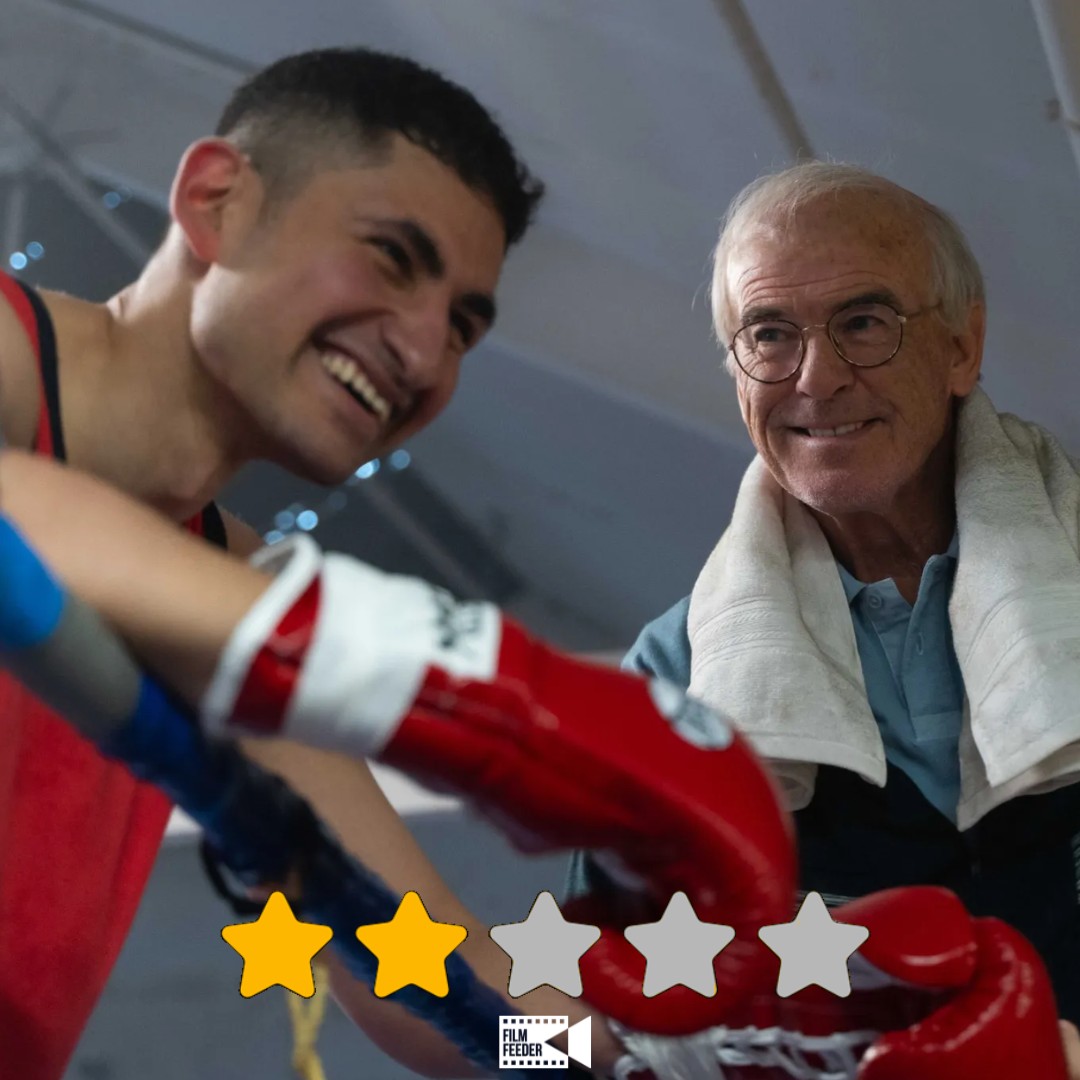
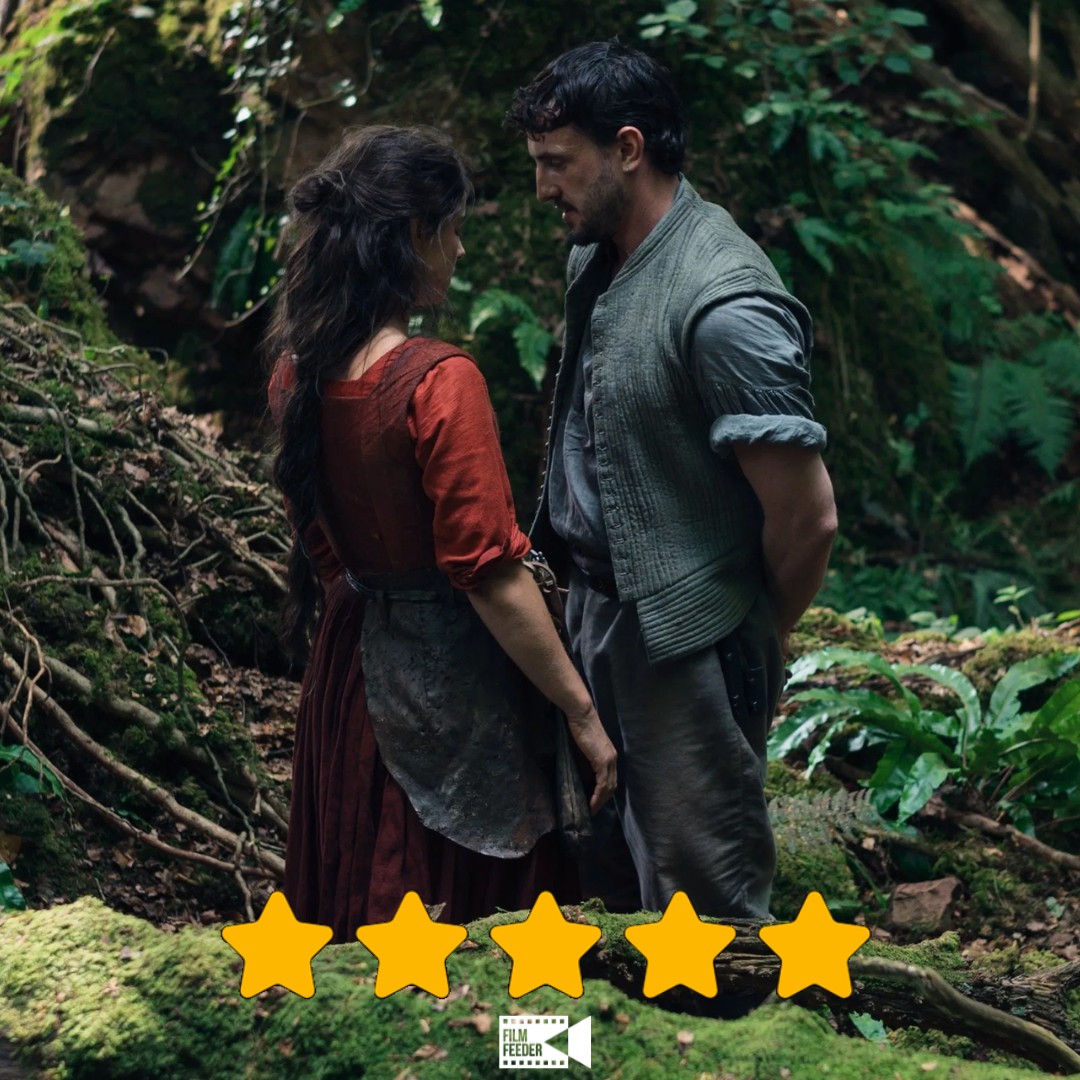
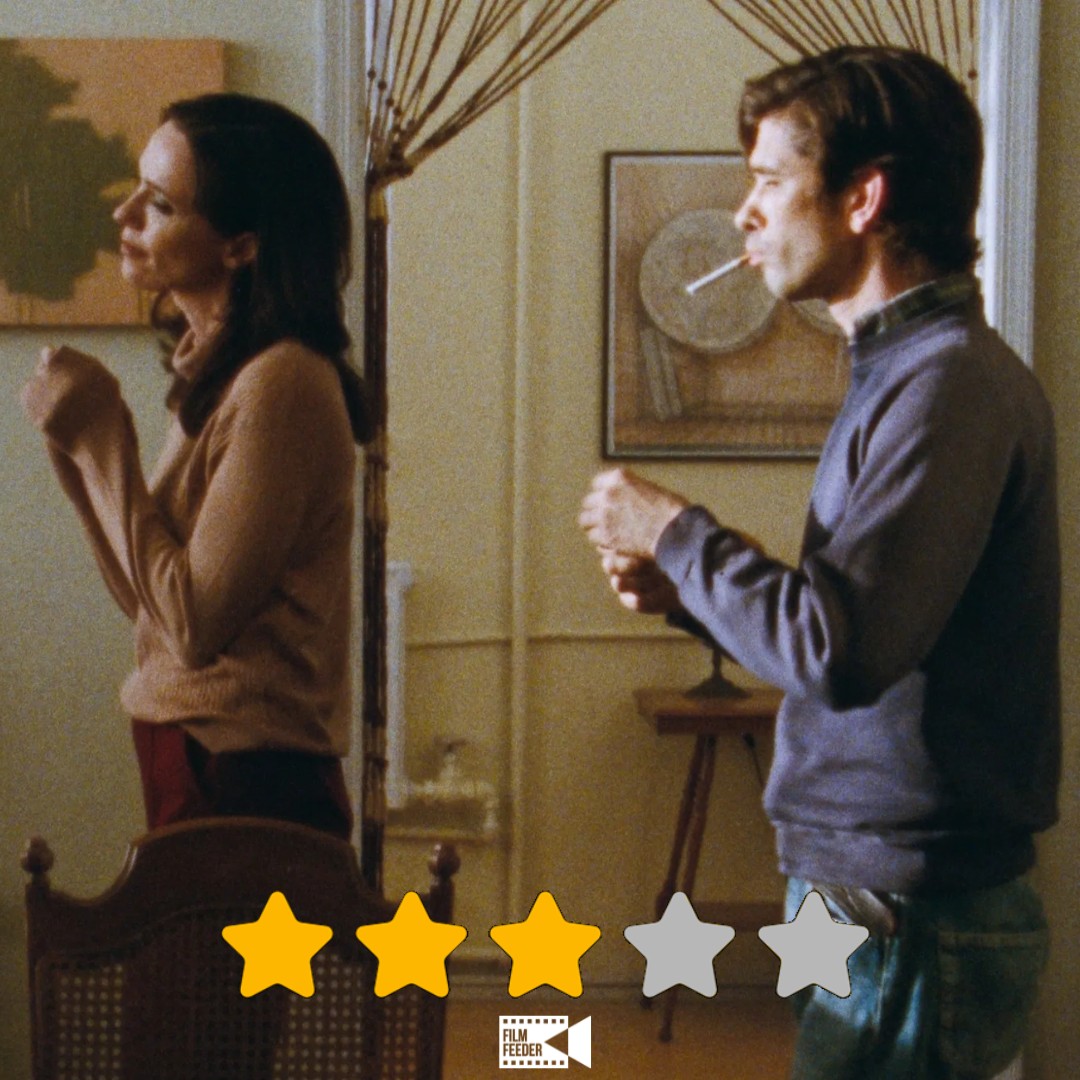

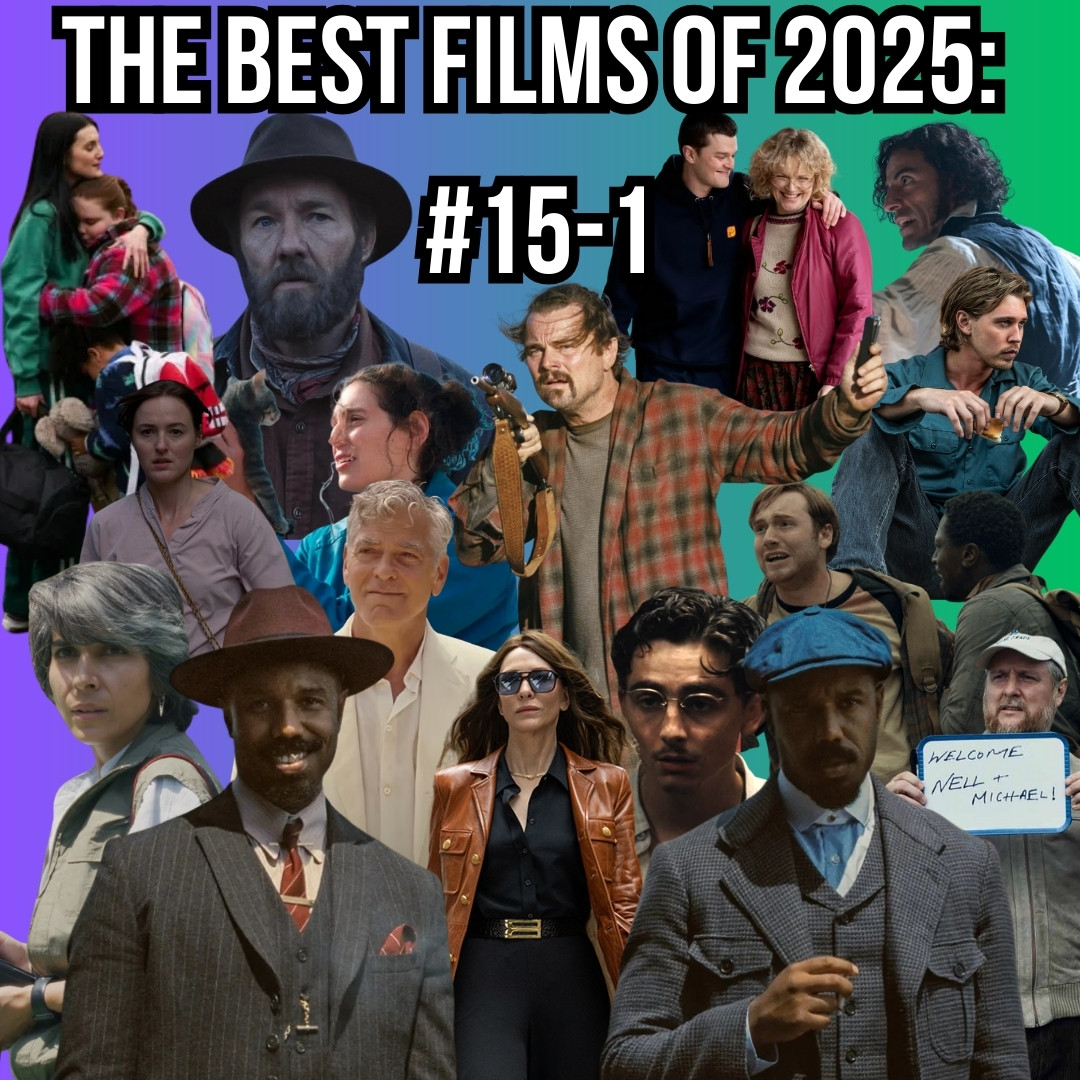


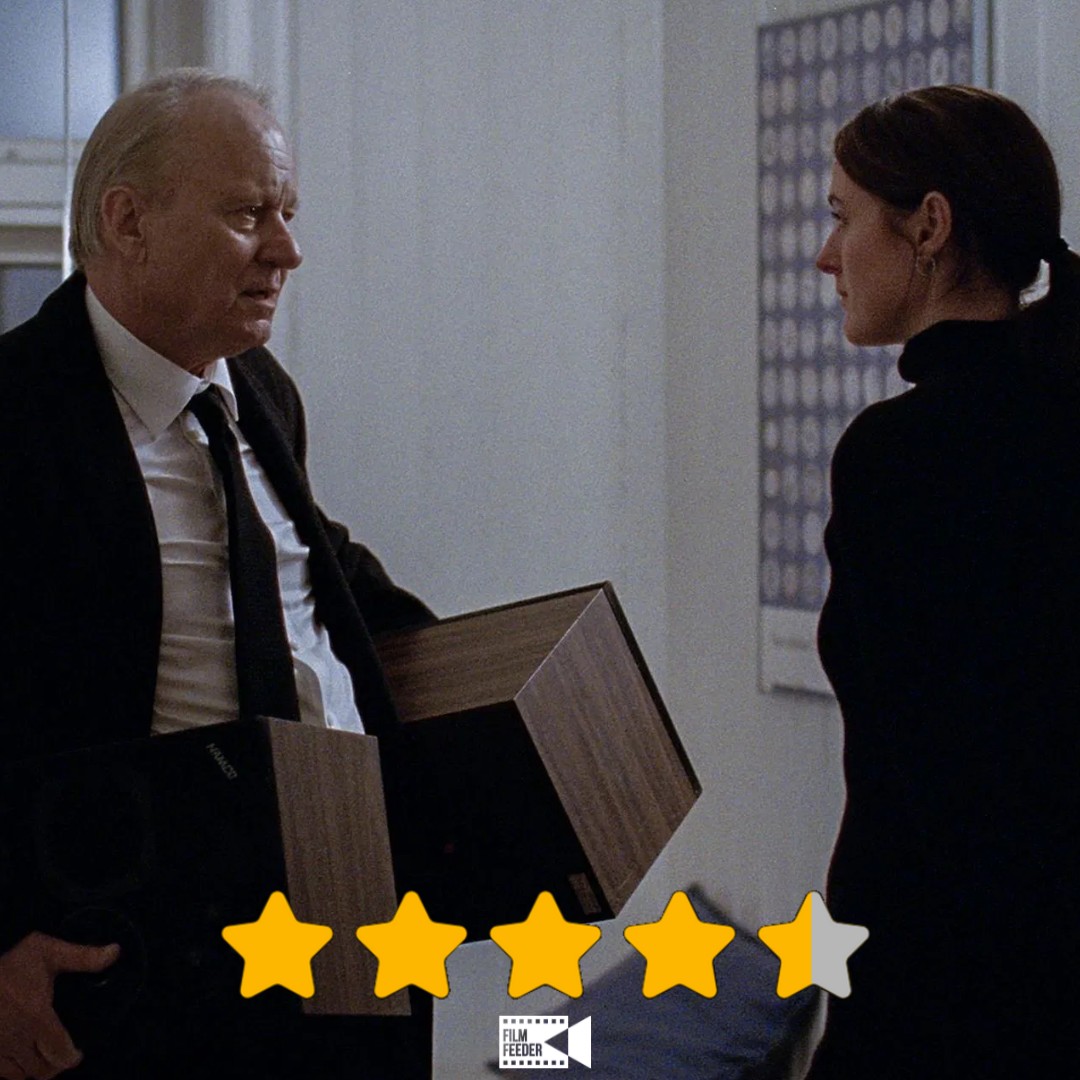


0 Comments